Black History Month is a wonderful time in February (though it shouldn’t be the only time) for people to increase their knowledge and awareness of the significant and ongoing contributions African-Americans have made to American society and its culture.
Unfortunately, celebration of the month has become stuck in the mud topic-wise for quite some time. The same historical facts and biographies are trotted out time and again ad nauseam. Martin Luther King. Civil Rights Movement. Malcolm X. The Civil War. Thurgood Marshall. School Desegregation. Frederick Douglas. The Voting Rights Act. Rosa Parks. Slavery. I Have A Dream.
As a result and not surprisingly, important African-American figures, historical events, work and legislation that have had an impact on Black Americans and the United States have become muted or an afterthought.
Of course there will always be those, young or old, who learn something new during the month which will resonate with them. However, there are others who find Black History Month (BHM) no longer interesting because for them it has turned into a form of ’28 Days of Trivia’ instead of it being a deeper dive into the ‘Black History’ knowledge pool.
For those individuals who need a history recharge or just want to learn something new, YETBW is here for you. Below is a list of articles, audio/interviews, books, documentaries and movies that is off-the-Black-History-Month-beaten-path. Learn and enjoy – not just during the month of February.
……………………………………………………….
AUDIO, VIDEO AND MULTIMEDIA

WWII Black Soldiers In Europe. The U.S. Holocaust Memorial Museum interviewed several U.S. black servicemen who served throughout Europe during World War II. The soldiers discuss their experiences dealing with racism from American white soldiers and those soldiers who served under Nazi Germany. As historian Stephen Ambrose has said “[Black] soldiers were fighting the world’s worst racist, Adolph Hitler, in the world’s most segregated army…[t]he irony did not go unnoticed.” Besides instances of racial conflict, you also hear about the soldiers’ combat experience, serving under General Patton, the impact of seeing German labor and concentration camps and even the mundane such as trying to line up a date. More than half a million Black Americans served overseas in various parts of Europe but their stories aren’t mentioned as much as they should be in WWII lore. Hearing these oral histories is more than worthwhile and keeps their history alive.

‘I’ve Been To the Mountaintop.’ Yes, it’s a speech by Dr. Martin Luther King, Jr. but it’s one that is shamefully overlooked. He made this speech on April 3, 1968 in Memphis, Tennessee in support of striking sanitation workers. It was also on the night before he was assassinated. It is such a personal and powerful speech; more like a sermon. It’s not uplifting and hopeful like his most famous speech ‘I Have A Dream’ which he gave in 1963. By 1968 he was on a different path and you can hear it in the words and tone of this speech. He is contemplative and tired; not sure how long he has to keep fighting, but he hasn’t laid down his gloves. The words in the last part of the speech are eery in hindsight, yet joyful given the fact that he was speaking on the eve of his death. When he loudly proclaims “I’m not worried about anything. I’m not fearing any man. Mine eyes have seen the glory of the coming of the Lord!” it will make your hair stand on end.
Voices From the Days of Slavery. During Black History Month you hear about the topic of slavery, but you don’t hear much from or about the people who actually lived it. The Library of Congress’ ‘Voices From the Days of Slavery has “almost seven hours of recorded interviews [that] took place between 1932 and 1975 in nine Southern states. Twenty-three interviewees, born between 1823 and the early 1860s, discuss how they felt about slavery, slaveholders, coercion of slaves, their families, and freedom.” Unfortunately, the quality isn’t top-notch, but it’s still worth a listen. Not everyday you get a chance to listen to people who lived through one of the harshest and inglorious periods of American history.
BOOKS AND ARTICLES
Bloods: Black Veterans of Vietnam War: An Oral History. Unfortunately, the history of Black Veterans is woefully minimal and marginalized, as if they weren’t part of America’s military or war efforts. The twenty veterans in this book (from private first class to colonels, poor to middle-class, all parts of the U.S.) tell their stories of what is was like fighting in Vietnam and the impact it has had on them. You also hear about how they dealt with being a Black American in the U.S. military while living in a country that was going through major racial and cultural upheaval. You can feel their pride, pain, confusion, cynicism and disillusionment concerning the war and themselves. Their stories and experiences are sad, dark, humorous, violent, insightful, and poignant. Terry did an amazing job of putting these stories together without getting in the way of the storytellers. This book is a classic and will stick with you long after you’ve finished it.
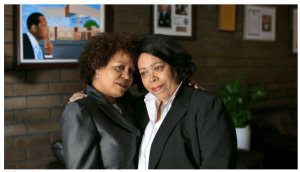
Dignity in Death for Black Families at a Brooklyn Funeral Home. This article encompasses so much, so well. Readers will learn about the important role black funeral homes have played in the Black Community through the eyes and work of the two women who manage the Lawrence H. Woodward Funeral Home in the Bedford-Stuyvesant neighborhood of Brooklyn, New York. Vicki Thompson-Simmons and her sister, Lynda Thompson-Lindsay understand the seriousness of their work, its legacy and the emotions that come with it while doing their best to honor the dead and their loved ones. It is a wonderful, informative and heartfelt piece. Simply put, it is more than just about the management of a black funeral home.
The Bluest Eye. Morrison has written other well-known books, but this Nobel Prize-winning title shows her at her writing best. It’s the story about an 11-year-old African-American girl named Pecola, growing up in 1940s Ohio who feels inferior because of her skin and eye color. She’s constantly being told she’s ‘ugly’ so she keeps wishing she had blue eyes so that she would be deemed worthy. Controversy has followed this book since its 1970 publication because it deals with racism, pedophilia and rape, all experienced by the main character. The story isn’t just about Pecola, but also her parents – their marital fights, their frustrations living in a mostly white community; her dad’s volatility, her mom working as a servant to a white family. Sometimes the various stories are told matter-of-factly, in a childish tone or in a harsh, painful or surreal manner. Morrison deals with the uncomfortable issues surrounding black vs. white beauty and the bitter reality of Black Americans in early/mid-twentieth century America. It’s a complex book that can be a challenge to read, but it’s worth the effort.
And the Walls Came Tumbling Down: An Autobiography. Ralph Abernathy played a significant role in the Civil Rights Movement in that he worked closely with Dr. King and was viewed as his successor after King’s death. Yet Abernathy, like many others involved with Dr. King saw their involvement in the Movement overlooked and sometimes forgotten. When this autobiography was originally published in 1989 many African-Americans, Black leaders and other activists were apoplectic about Abernathy airing Dr. King’s ‘dirty laundry’ (i.e., he regularly cheated on his wife, used expletives, wasn’t always a nice person, FBI was spying on him) instead of simply writing about King’s humanity and his tireless civil rights work. Many thought Abernathy had an ax to grind; that he was finally showing his jealousy about King and bitterness over his limited post-Movement success. Maybe some or all of the accusations are true, but this book is still a must-read in that you get an insider view, warts and all, about the people within King’s circle, the actions and decision-making process of other well-known black leaders, the roles played by politicians, governmental actions and the struggles and triumphs of the Movement. As a result of this book future publications on King and the Civil Rights Movement stepped back from the deification of both by providing more insight than reflexive accolades, which is a good thing.
Kindred is the kind of book that will resonate with you long after you’ve read it. Imagine being a black woman in 1976, living in California and about to celebrate your 26th birthday with your new husband when suddenly you’re away pulled away through time and end-up on a pre-Civil War southern plantation where slavery is alive and well? Though time travel is somewhat of a stereotypical science-fiction trope, Butler uses it as a tool, not as a story gimmick. As Dana tries to survive in the slave era you learn about what it meant to be a slave: the fear, the beatings, the rapes, the humiliations – of being seen and treated as being not human. Butler makes you feel everything that Dana is thinking as she tries to deal with the impact of moving between time-periods at a moment’s notice – wondering how long she will be there upon each ‘visit’ and if/when she will ever return home. Octavia E. Butler has written other books and has been called the ‘grand dame of science fiction,’ but the quiet intensity of Kindred is her crowning achievement and should be on everyone’s ‘must read’ list.
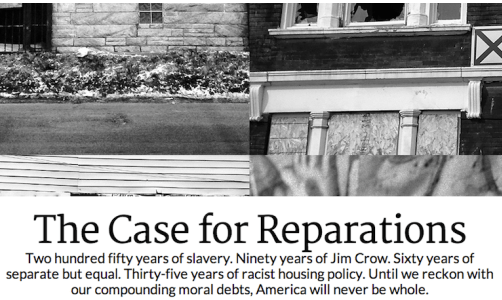
‘The Case for Reparations‘ by The Atlantic’s Ta-Nehisi Coates is a ten-part, heartbreaking magnum opus of an essay about why African-Americans should receive reparations from the United States. Coates argument is not based on slavery (which he doesn’t discuss as much given the article’s title) nor on how much money is ‘owed’ to Black Americans (which isn’t mentioned) but the long, cumulative effect of discrimination on generations of African-Americans. The article makes it case by interweaving the generational story of African-Americans and the obstacles they’ve faced (white supremacy, inequality, governmental discrimination) by way of Clyde Ross, a sharecropper’s son who escaped the Jim Crow South who ended up in Chicago fighting for black homeowners. Coates 15,000 word piece is dense in that you might find yourself having to revisit it after the first read, because there is so much interesting information, history and emotion in the piece. Whether you’re an opponent or proponent of reparations this article will give you a better and more complete understanding of the reparations argument.
DOCUMENTARIES, MOVIES, SHOWS AND PROGRAMS
Brother Outsider: The Life of Bayard Rustin. The title of this documentary sadly sums up Bayard Rustin‘s life as a key member of the Civil Rights Movement. Besides being the chief organizer of the March on Washington and a major influence on CORE and SNCC activists he was also a leader in other movements such as socialism, non-violence and gay rights. It was that latter stance and the fact that he was gay that has kept Rustin out of most history books. Brother Outsider rectifies that mistake by giving viewers the opportunity to learn about a major civil rights player who was marginalized by most of the black civil rights community though they were more than willing to make use of his knowledge and planning skills. In 2013 President Barack Obama posthumously awarded Rustin the Presidential Medal of Freedom. The White House Press Release regarding Rustin’s award said he was “an unyielding activist for civil rights, dignity, and equality for all. An advisor to the Reverend Dr. Martin Luther King, Jr., he promoted nonviolent resistance, participated in one of the first Freedom Rides, organized the 1963 March on Washington for Jobs and Freedom, and fought tirelessly for marginalized communities at home and abroad. As an openly gay African American, Mr. Rustin stood at the intersection of several of the fights for equal rights.” Rustin should be more than just a historical footnote in the fight for civil rights and social justice.
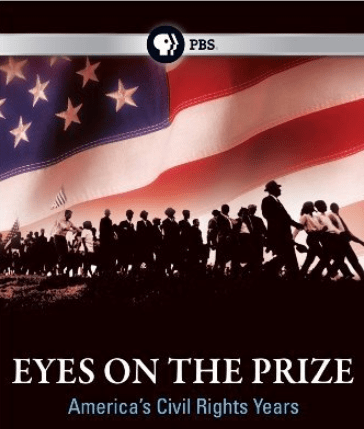
Eyes On the Prize. This multi-episode documentary, originally aired on PBS in 1987 is considered the seminal documentary on the Civil Rights Movement in America. It’s not exactly off-the-beaten-path as it pertains to this article. However, as time has passed, it has become somewhat overlooked because it wasn’t available for years (1993-2006) due to copyright issues. Eyes On the Prize, as described by PBS, tells the story of The Movement [t]hrough contemporary interviews and historical footage [as] the series covers all of the major events of the civil rights movement from 1954-1985. Series topics range from the Montgomery bus boycott in 1954 to the Voting Rights Act in 1965; from community power in schools to ‘Black Power’ in the streets; from early acts of individual courage through to the flowering of a mass movement and its eventual split into factions.” Words do not do this series justice in regards to how pivotal, informative and heart-breaking this series is in describing and showing how Black Americans (and their allies) fought for their personhood and legal rights to be treated fairly and equally in a nation that was resistant to recognizing their humanity. Note: All 14 episodes are available here via YouTube. Watch them while you can before they’re taken down.
Unforgivable Blackness: The Rise and Fall of Jack Johnson. Johnson didn’t act the way black people were supposed to act in the early part of the twentieth century. He didn’t know his ‘place’ and he eventually paid the price for it. But at one point in time Johnson was the most fierce and dominant boxer that America had ever seen. He was the first African-American heavyweight champion who annihilated black and white opponents, the latter of which caused major debates amongst whites regarding black superiority and led to race riots. Add to that his unrepentant flashing of his success and riches while cutting a sexual and marital swath through a string of white women, Johnson was too much for many whites and blacks to handle. This documentary (based on the same-titled book by Geoffrey C. Ward) really digs into Johnson’s personal and professional history via archival film, photographs and interview with boxing experts. You don’t have to be a boxing fan to appreciate this film. Note: I also recommend ‘The Great White Hope‘ (1970) starring James Earl Jones as Jack Jefferson (obviously based on Johnson). Jones is fierce as Jefferson and doesn’t pull any punches (pun intended) in showing us Johnson’s anger, brutishness, hurts of what it was like to be a feared and successful black man and athlete in early 20th Century America. You can watch it here on YouTube.
The Boondocks ‘Return of the King’ When ‘Boondocks,’ an animated show on the Cartoon Network, first broadcast ‘Return of the King’ the outrage came high and fast (though it did end-up winning the prestigious Peabody Award for ‘Best Storytelling‘). Mainly because Aaron McGruder, the show’s creator and writer had Dr. King dropping the n-word several times while raging against ‘shiftless Negroes.’ But the brouhaha obscured what the episode was really about – the reimagining of history. What if Dr. King wasn’t assassinated in 1968? What if he had just been shot; remained in a coma for 32 years and woke-up in 2000 America? The episode shows an aged King trying to adjust to the new media and culture that is just too loud and fast for him. Huey Freeman, Boondock’s 10-year old, socially-conscious main character sees King’s return as an opportunity for African-Americans to start a new revolution, but King and Huey soon realize that they have their work cut out for them. The episode is full of cynicism, along with anger, disgust and sadness, yet still hopeful. It is an enlightening, ballsy and fierce take on a historical icon and U.S. and African-American culture.
The Autobiography of Miss Jane Pittman. Pittman is not an actual person nor was she based on a historical figure. She is the 110-year old black woman and protagonist in Ernest J. Gaines 1971 novel which was the basis for the same-titled movie. This 1974 television movie (made before the miniseries ‘Roots’) was ground-breaking in that it showed many facets of the African-American experience that was rarely seen in movies or on television, such as slavery, plantation life, lynchings and poverty. The viewer sees and hears about Pittman’s life as a slave girl during the Civil War era and up to and beyond the Civil Rights Movement. We also see America grappling with its racial, cultural and military wars amongst its black and white citizens. It’s all done through the eyes and narration of an elderly woman who lets us know that she has seen, battled and lived a lot over her many decades. Cicely Tyson as Jane Pittman is simply fantastic in the film. She brings Pittman to life, so it’s understandable that people over the years have taken the movie and book title seriously and thought Pittman was a real person. The movie isn’t an official autobiography, but it is a biography of America’s history that is definitely worth seeing. Note: The movie can be viewed in its entirety online here via YouTube.
Cooley High. Teen movies have been around for decades, but most film buffs say the genre really started with American Graffiti (1973). Since then Hollywood has been producing teen movies like they’re going out of style. Unfortunately movies about black teens are still MIA, which is what makes ‘Cooley High’ (1975) still so special forty years later. Plainly, it is just a movie about black high school students in Chicago during the 1960s or as its screenwriter Eric Monte described it “a movie without a plot.” It may not have a storyline but a lot happens in the film such as dating woes, failing grades, carjacking, drugs and the joys of cutting class along with a killer Motown soundtrack. The teens in the film were the usual suspects: jocks, jokesters, nerds, pretty girls and bullies but instead of it taking place in white suburbia the setting was south side Chicago in the rough Cabrini-Green public housing projects. It’s considered a black cinema classic, but it also ranks up there as one of the best high school movies.
A Soldier’s Story. This 1984 movie is based on a Pulitzer Prize-winning, Off-Broadway play, a tone and feel which shows up in the film on occasion. There a lot of soon-to-be-well-known actors (Howard Rollins, Jr., Denzel Washington, Robert Townsend, David Alan Grier) along with seasoned broadway veterans (Adolph Caesar, Art Evans, Scott Paulin). However, its the work of Rollins, Washington and Caesar (nominated for Best Supporting Oscar for his role) that creates the foundation for the film. The plot centers around a black officer (Rollins) who is sent to Louisiana to investigate the murder of a black sergeant who was killed during the end of World War II. The film chronicles the racism and Jim Crow South that the black military men have to deal with on and off the army base, but also the intra-racism that they have amongst themselves based on speech, education, class and geography. A provocative film set inside a whodunnit scenario with a strong cast.
……………………
Do you have any off-the-beaten-path suggestions (books, movies, programs, etc.) regarding Black History and/or African-American culture that are interesting, informative or note-worthy? If so, feel free to leave them in the comment section.

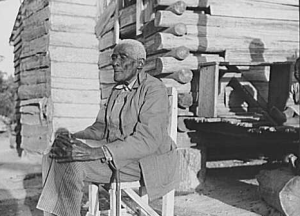
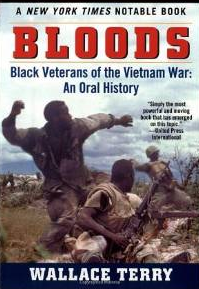
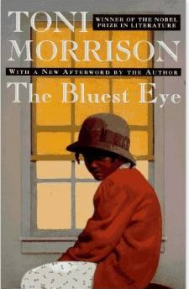

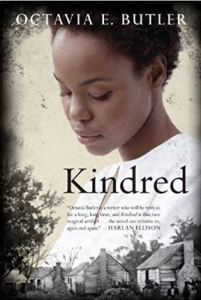
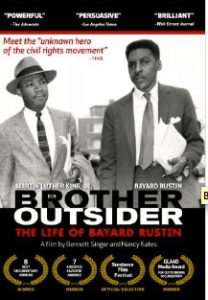
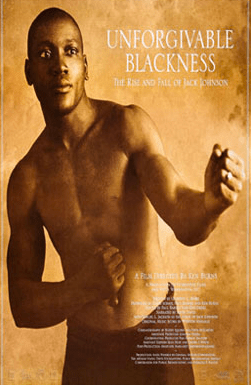

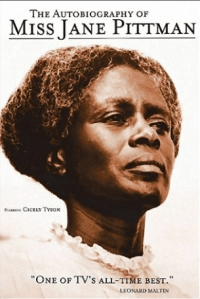


Incredible post, I read every word.
LikeLike
Thanks, much appreciated! 🙂
LikeLike
Red Tails is a pretty good flick. The Tuskegee Airmen braved so much challenge to be who they were – committed American men who just wanted a chance.
LikeLike
Oddly enough, I’ve yet to get around to seeing this film. Several years ago, I attended a program in which a couple of Tuskegee Airmen spoke about their life as part of a a Black History Month event. Seeing and hearing from them was simply fantastic.
My apologies for the very delayed response.
LikeLike
Reblogged this on From the Heart of Me: Live and commented:
For those interested in more than the basics of black history that you keep getting spoon fed every February, here are some unconventional pearls of knowledge to take you into March. Let’s make Black History an all the time celebration. You cannot value what you do not know exists.
LikeLike
I love you so much for this post. Thank you! And reblogging.
LikeLike
Thanks for the blog post love and shout-out 🙂
LikeLiked by 1 person